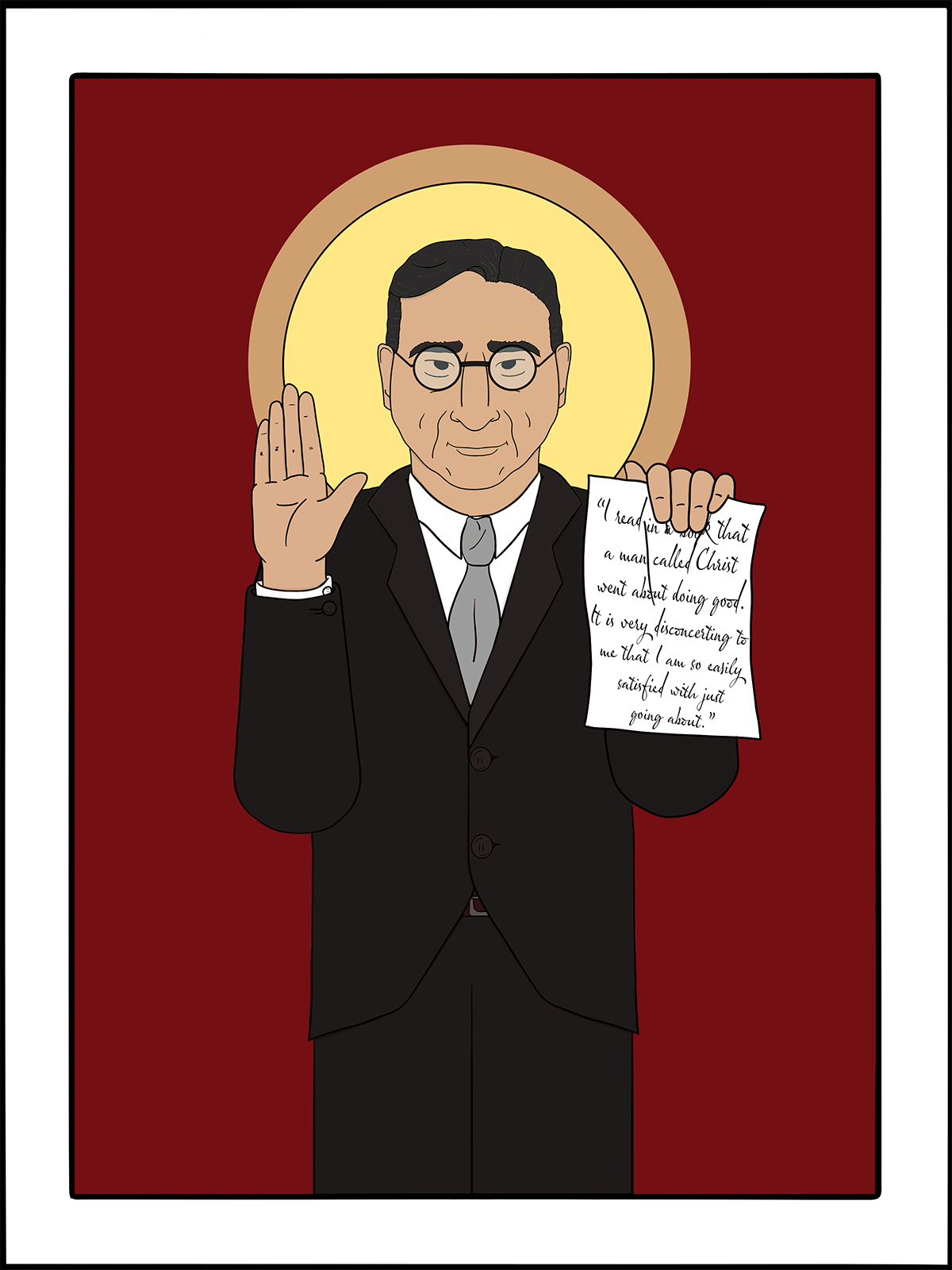
April 23
Toyohiko Kagawa
Social Reformer, 1960
art by Rev. Kirsten Kohr of Uhrichsville, Ohio Strengthen and protect, O God, all those who suffer for their fidelity to Jesus Christ; that, like your servant Toyohiko Kagawa, they might persevere in seeking and serving Christ in all persons, and work tirelessly for the advancement of your kingdom; through the same Jesus Christ our Lord, to whom with you and the Holy Spirit be all honor and glory now and for ever. Amen.
Toyohiko Kagawa, born on July 10, 1888, in Kobe, Japan, was a Japanese evangelist, advocate of social change, and pacifist.
Kagawa was the son of a wealthy Kobe Buddhist business entrepreneur-politician and his concubine, both of whom died when Kagawa was four years old. The youth was raised by Presbyterian missionaries and had a conversion experience at the age of fifteen. “O God, make me like Christ,” he prayed repeatedly.
Kagawa studied at theological seminaries in Japan and at Princeton University and Princeton Theological Seminary, but was increasingly drawn to an evangelism of social reform, seeking to apply Christ’s teachings directly to Japan’s poor in a theologically uncomplicated way. From 1910 to 1924, he lived for the most part in a six-foot-square windowless shed in Kobe’s slums. A skilled organizer, he helped found trade unions and credit unions among dock workers, factory laborers, and subsistence farmers. Trade unions were forbidden at the time, and Kagawa was twice imprisoned. He was also a pacifist and organized the National Anti-War League in 1928. Kagawa was arrested in 1940 for publicly apologizing to the people of China for Japan’s invasion of that country. An advocate for universal male suffrage (granted in 1925), he later became a voice for women’s right to vote as well.
A prolific author, his autobiographical novel, Crossing the Death Line (1920), became a best-seller, and many of his other novels and writings in a Christian Socialist vein were translated into English. He used the revenues from his substantial book sales to fund his extensive slum work. Although Kagawa was under police surveillance much of his life, the Japanese government called on him to organize the rebuilding of Tokyo after a 1923 earthquake and again at the end of World War II to serve as head of the country’s social welfare programs.
Although some knew him best as a social reformer and pacifist, Kagawa saw himself first of all an evangelist. “Christ alone can make all things new,” he said. “The spirit of Christ must be the soul of all real social reconstruction.”
Kagawa died on April 23, 1960, in Tokyo.
Excerpted directly from “Lesser Feasts and Fasts 2022,” p. 204-205.
Lessons and PsalmJob 13:13-22
Psalm 140
Luke 22:47-53
Preface of a Saint (1)

